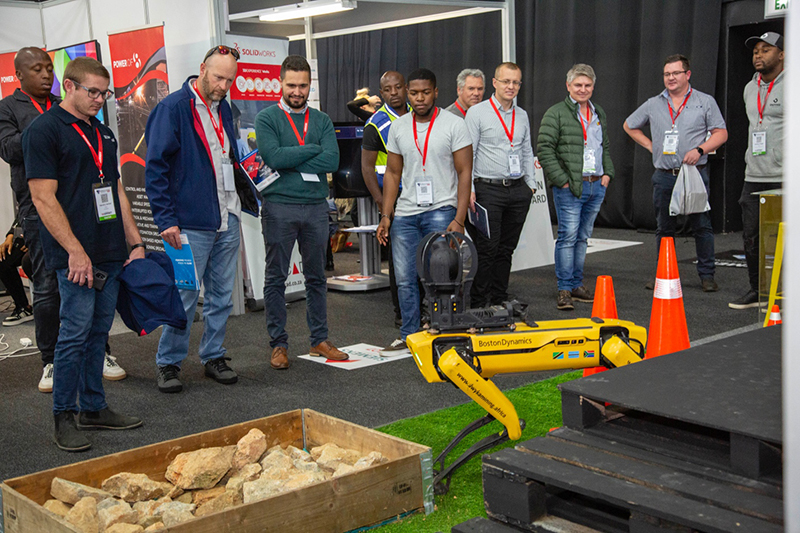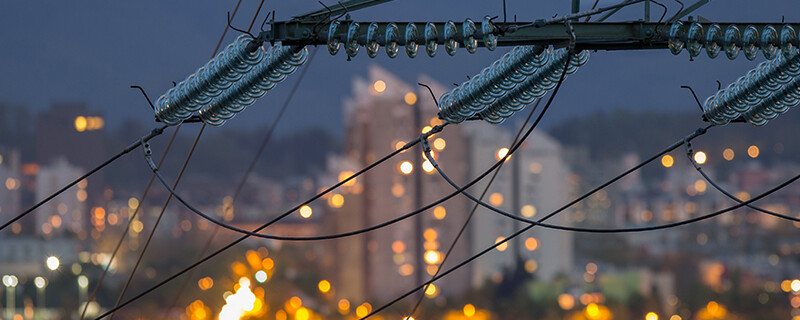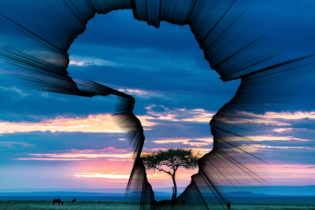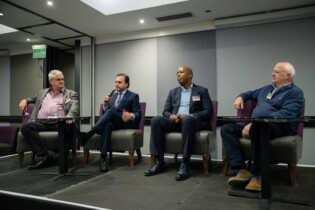Energy and water security remain top concerns in South Africa. The theme of the recent 12th Africa Automation Technology Fair (AATF) and inaugural InfoSecurity Africa conference was For Africa from Africa, with the fundamental transformation of the electricity sector and the future of water supply high on the agenda.
The recent fair, held at the Gallagher Convention Centre in Johannesburg, featured 50 countries, of which 18 were African. Private stakeholders, large businesses, entrepreneurs and small businesses had the latest in automation and technology on display. Carol Weaving, managing director at RX Africa, said that the show had 20% more attendees than the previous show, and added: “Over 500 meetings were conducted by our hosted African industry decision makers, solidifying thousands of business connections.”
Third-party electricity traders
Aki Anastasiou asked at the show opening how many people are looking into solar power this year. Half of the attendees confirmed this with a show of hands. Guest speaker Chris Yelland, managing director of EE Business Intelligence, said we cannot afford to waste any more time. South Africans should take ownership of their own electricity supply and he believed we could solve our electricity shortfall through banding together to each do our part.
South Africa should follow the global trend of working with third-party electricity traders to solve the loadshedding dilemma. BRICS neighbour, Brazil has some 150 traders, while South Africa only has four. Yelland believes electricity traders will become an important part of the evolution from just the single buyer, Eskom, to having various buyers looking to procure electricity.
The recent tax incentives on solar are more in favour of businesses than individuals, but either way, installation is still a cost to factor in. Yelland felt that improving incentives would encourage a mass roll-out of rooftop solar installations that would lead to a surplus of cheap energy. “The more people who install rooftop solar, the better the outcome for all.”

Water as an economic enabler
Doing what it takes in the present to reach a better, livable future was a firm narrative across AATF. Dr. Anthony Turton, Professor at the Centre for Environment Management at the University of the Free State, has a strong opinion about this. “South Africa could have made plans for sustainable water infrastructure years ago, and the longer the delay, the bigger the catastrophe.”
Water is an economic enabler, but South Africa is struggling to sustain the engineering talent needed to stabilise and futureproof the system. According to Turton, our economy has been water-constrained for at least two decades. We have less water than previously predicted, due to changing rainfall patterns as a result of climate change. He stressed that we need to reuse every drop of water in South Africa 1.65 times by 2035 to ensure sufficient supply – a doable target if we act quickly.
Intelligent automation
Smart technology can solve many problems. Dave Wibberley, Managing Director of Mitsubishi Electric – Factory Automation in Sub-Saharan Africa, was among guest speakers at InfoSecurity Africa. Manufacturing processes can be simplified by implementing automation, he said. This makes the case for the use of ‘cobots’ in the workplace. A cobot is a collaborative robot that works closely with humans to save time, money and reduce safety risks.
Intelligent automation could be the most significant driver of productivity gains over the next five years. The global intelligent automation market in manufacturing is estimated to reach $16.7 billion by 2026, a significant increase on $5.6 billion in 2020, according to MarketsandMarkets data. Accenture reports that intelligent automation has the potential to ease manufacturing operational costs by 25%, while a McKinsey study found it can increase productivity by 20%.
Sean Ammon, founder and MD at CIBA (Africa & Europe), echoed this potential, stating that companies with advanced automation programs will “obliterate, not merely beat, competition”. Terence Singh, director at Ruhi Consulting, spoke about AI being best suited to tasks that require problem-solving, usually offering fast, repetitive output. Generative AI is more creative and presents new output, which we cannot yet predict. The capacity to change the game through using technology and automation is astounding.
Product showcase
“AATF has always been one of the OMRON Automation Sub-Saharan Africa’s cornerstone exhibitions that we as a company love attending. It allows us to showcase our product offering to our new potential customers and current clients. It is a great platform to showcase our solutions-based technology specifically for the food and commodities, pharmaceutical and medical, as well as the automotive industries,” added Cezanne Gonsior, Regional Marketing Manager, Sub-Saharan AfricaX.
“The shows this year were bursting with inspiration as innovation continues to reshape our views on the future. Our advisory board shared invaluable contributions that have played a crucial role in shaping the show’s success, whilst our association partners, the SAIMC and SACAC, generously shared their extensive knowledge and expertise at the show. An abundance of business opportunities and matches were made, and we look forward to the next installment,” RX Africa’s Weaving concludes.
The next Africa Automation Technology Fair will be held from 6-8 May 2025. Visit www.africaautomationtechnologyfair.com for more information.







